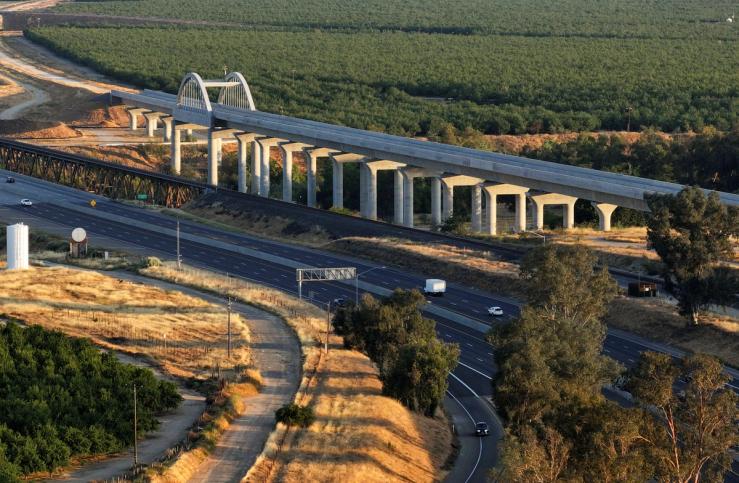the issue
High partisan tensions in Washington haven’t disrupted the bipartisan push for improving the nation’s infrastructure.
Almost four years ago, under former President Joe Biden, Republicans and Democrats joined hands to pass a law with significant new funding to improve the nation’s roads and bridges.
Now lawmakers are looking for ways to cut wasted time and bloated costs associated with highways, roads, and railways.
In this article:
the bond
As Congress prepares to assemble a package to reauthorize the nation’s surface transportation programs over the coming year, they have a new pitch to consider.
A group of bipartisan lawmakers recently wrote to the leaders of the House Transportation and Infrastructure Committee with a series of policy changes designed to speed up and reduce the cost of transportation projects that could be included in the upcoming transportation reauthorization bill.
“We urge you to include provisions in the bill that limit unnecessary process, reform overly burdensome environmental review, cut excessive red tape, and remove barriers to housing construction,” they wrote in a letter first reported by Semafor last week.
The group suggests improving an existing program for fast-tracking permitting; creating an exception for small projects to avoid lengthier environmental reviews; and building more housing near mass transit systems, among other ideas.
“There’s bipartisan energy around speeding up the delivery of public services,” Rep. Jake Auchincloss, D-Mass., one of the signatories on the letter, told Semafor. “Energy is probably the most immediate priority, but transportation — because of the surface transportation reauthorization — is the other big one, to me.”
The current surface transportation bill, which was included in the Biden-era bipartisan infrastructure package signed into law in 2021, expires in September 2026. Congress has until then to pass a new one.
Rep. Sam Graves, R-Mo., who chairs the House transportation panel, “has spoken publicly about the need to make infrastructure project approval processes more efficient, and that is certainly something the Committee is considering as it continues to develop a surface transportation reauthorization bill this year,” a Republican committee aide told Semafor.
Know More
While bipartisan, the letter carries echoes of the so-called abundance movement, a push growing popular among Democrats that focuses on aligning around building things people need quickly and cheaply by undoing burdensome regulations.
“I don’t usually talk about this in terms of that term, ‘abundance,’” Auchincloss said. “The way I think about it is, we want an economy that works like Legos, not Monopoly.
“An economy that works like Legos is one where Americans are building things together that matter and that lower prices,” he added. “An economy that works like Monopoly is one where middlemen or monopolists are able to price gauge based on unfair government or corporate practices.”
The View From the left
The idea of removing restrictions getting in the way of transportation and housing projects has broad appeal, including among progressives who have been skeptical of the abundance movement.
“We agree that there’s a lot of stupid housing, zoning restrictions that are designed to keep out Black and poor people,” Jeff Hauser, executive director of the left-leaning Revolving Door Project, told Semafor. “Transit is very connected to that.”
Progressives’ issue with “abundance” lies in how the movement has built out that analogy to include energy and environmental deregulation, Hauser said.
Abundance advocates who argue for making it easier to build energy pipelines to power artificial intelligence data centers, he offered, is a bridge too far for progressives who are worried about the environmental effects.
Notable
- The transportation committee approved a water permitting reform bill last week, Politico reported.
- Critics of the abundance movement say it misses the point, The Washington Post reported.



